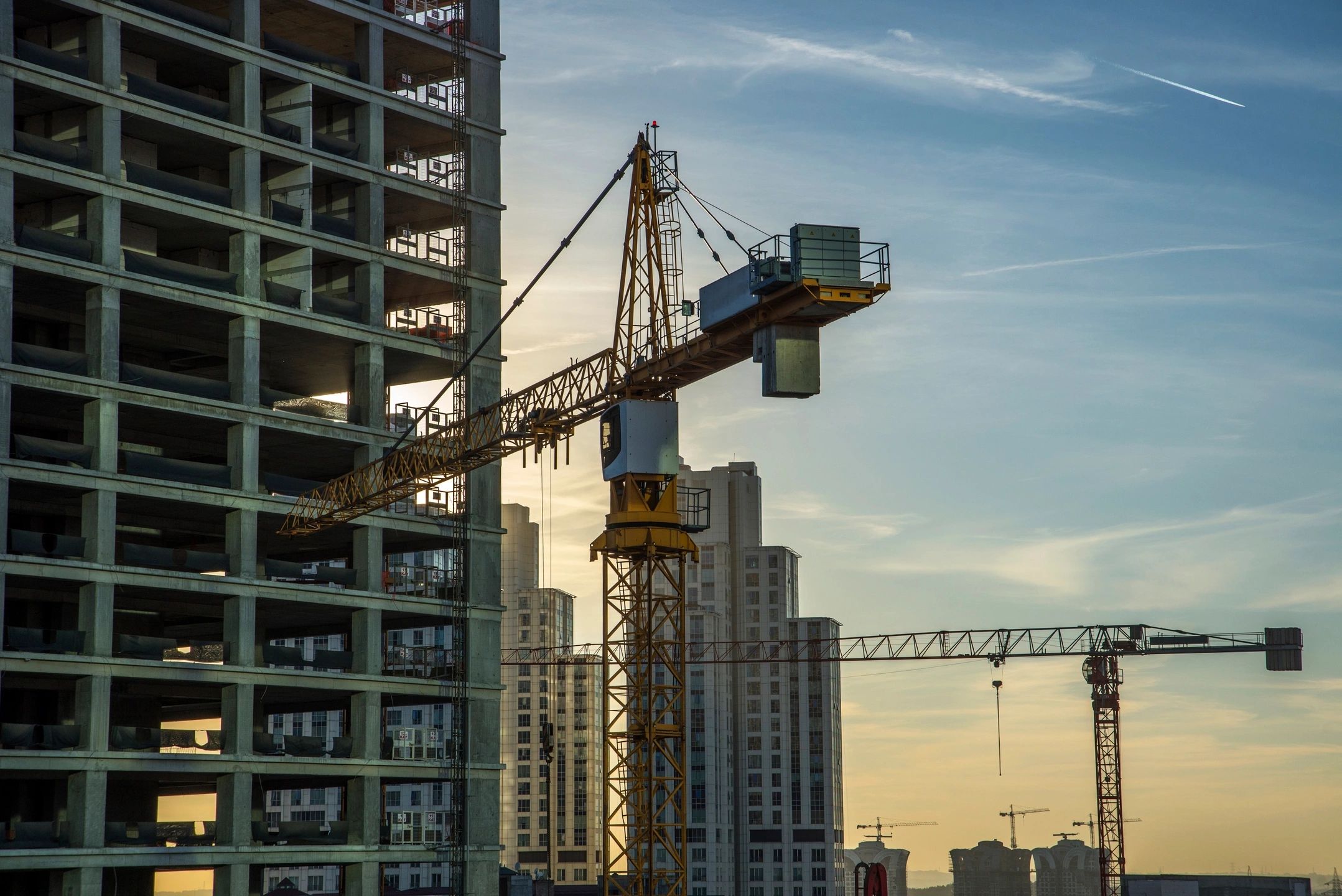🏠 Dreaming of owning a home in Toronto? Before you dive into the exciting world of real estate, there’s a crucial aspect you need to understand: property taxes. These annual payments can significantly impact your homeownership costs, yet many buyers overlook their importance.
Imagine signing the papers on your dream home, only to be blindsided by unexpectedly high property tax bills. Don’t let this happen to you! 💡 Understanding Toronto’s property tax system is essential for making informed decisions and avoiding financial surprises. From the basics of how taxes are calculated to available rebates and relief programs, there’s a lot to learn.
In this comprehensive guide, we’ll walk you through everything you need to know about property taxes in Toronto. We’ll explore the factors that affect tax rates, how assessments work, and what the future might hold for the city’s property tax landscape. By the end, you’ll be equipped with the knowledge to navigate this complex aspect of homeownership like a pro. Let’s dive in and unravel the mysteries of Toronto’s property taxes together!
The Basics of Property Taxes in Toronto
A. Definition and purpose of property taxes
Property taxes are a crucial source of revenue for the City of Toronto, funding essential municipal services and infrastructure. These taxes are annual charges levied on property owners based on the assessed value of their real estate.
B. How property taxes are calculated
Property taxes in Toronto are calculated using the following formula:
Property Tax = Assessed Value of Property × Tax Rate
The Municipal Property Assessment Corporation (MPAC) determines the assessed value, while the City of Toronto sets the tax rate annually.
C. Current property tax rates in Toronto
As of 2023, the residential property tax rates in Toronto are as follows:
| Property Type | Tax Rate |
| Residential | 0.614770% |
| Multi-Residential | 1.212849% |
It’s important to note that these rates can change annually based on the city’s budget requirements.
D. Frequency of property tax payments
Toronto property owners have several options for paying their property taxes:
- Annual payment (due in February)
- Semi-annual payments (due in March and July)
- Monthly pre-authorized payments (11 installments from February to December)
Choosing a payment plan that aligns with your financial situation can help manage this significant homeownership expense effectively.
Understanding these basics is crucial for potential buyers as they consider the full cost of homeownership in Toronto. Next, we’ll explore the various factors that can influence property tax rates, providing a more comprehensive view of this important aspect of real estate ownership.
Factors Affecting Property Tax Rates
Now that we’ve covered the basics of property taxes in Toronto, let’s explore the key factors that influence property tax rates. Understanding these elements is crucial for potential buyers to make informed decisions about their real estate investments.
A. Property Value Assessment Process
The Municipal Property Assessment Corporation (MPAC) conducts property value assessments in Toronto every four years. This process plays a significant role in determining your property tax bill. MPAC considers various factors, including:
- Location
- Lot size
- Building size
- Age of the property
- Quality of construction
B. Municipal Budget Requirements
Toronto’s annual budget needs directly impact property tax rates. The city sets these rates to generate sufficient revenue for essential services and infrastructure maintenance. Factors influencing the budget include:
- Public services (e.g., police, fire, waste management)
- Infrastructure projects
- Economic conditions
- Population growth
C. Property Classification and Its Impact
Different property types are subject to varying tax rates. Here’s a breakdown of the main property classes and their typical tax rate relationships:
| Property Class | Relative Tax Rate |
| Residential | Base rate |
| Multi-residential | 2-3x residential |
| Commercial | 3-4x residential |
| Industrial | 3-4x residential |
D. Recent Trends in Toronto’s Property Tax Rates
Over the past few years, Toronto has seen some notable trends in property tax rates:
- Gradual increases to keep pace with inflation
- Efforts to narrow the gap between residential and commercial rates
- Introduction of new subclasses for small businesses and creative enterprises
Understanding these factors can help buyers anticipate potential changes in their property tax obligations over time. Next, we’ll explore the various property tax rebates and relief programs available to Toronto homeowners.
Property Tax Rebates and Relief Programs
Now that we’ve explored the factors affecting property tax rates, let’s delve into the various rebates and relief programs available to Toronto homeowners. These programs can significantly reduce the financial burden of property taxes, making homeownership more accessible and sustainable for many residents.
A. First-time homebuyer rebates
First-time homebuyers in Toronto can benefit from the Land Transfer Tax Rebate program. This initiative offers substantial savings on both municipal and provincial land transfer taxes.
| Rebate Type | Maximum Rebate Amount |
| Municipal | Up to $4,475 |
| Provincial | Up to $4,000 |
To qualify, buyers must:
- Be at least 18 years old
- Be a Canadian citizen or permanent resident
- Occupy the home as their principal residence within 9 months of purchase
B. Senior citizen tax relief options
Toronto offers several programs to assist senior homeowners with their property taxes:
- Property Tax Increase Cancellation Program
- Property Tax Increase Deferral Program
- Tax Relief for Low-Income Seniors and Low-Income Persons with Disabilities
These programs help seniors manage rising property taxes, allowing them to remain in their homes longer.
C. Low-income homeowner assistance
The City of Toronto provides support for low-income homeowners through:
- Property Tax Increase Cancellation Program
- Water Rebate Program
- Solid Waste Rebate Program
These initiatives aim to make homeownership more affordable for those facing financial challenges.
D. Vacancy rebate program
While the City of Toronto has phased out its Vacancy Rebate Program for commercial and industrial properties, it’s worth noting that residential properties do not qualify for vacancy rebates. However, homeowners can appeal their property assessment if they believe it doesn’t accurately reflect the property’s value.
Understanding these rebates and relief programs is crucial for potential buyers and current homeowners alike. Next, we’ll examine how property taxes impact overall homeownership costs in Toronto.
Impact of Property Taxes on Homeownership Costs
Budgeting for Annual Property Tax Expenses
When purchasing a home in Toronto, it’s crucial to factor in property taxes as a significant ongoing expense. To effectively budget for these annual costs:
- Research historical tax rates for the area
- Estimate your property’s assessed value
- Calculate potential annual tax payments
- Set aside monthly contributions to cover the annual bill
How Taxes Affect Mortgage Affordability
Property taxes play a vital role in determining overall mortgage affordability:
| Factor | Impact on Affordability |
| Higher taxes | Reduce borrowing capacity |
| Lower taxes | Increase purchasing power |
| Tax increases | May strain monthly budget |
Lenders typically include property tax estimates when calculating debt-to-income ratios, directly influencing the mortgage amount you can qualify for.
Long-term Financial Planning Considerations
To ensure sustainable homeownership, consider these long-term financial planning strategies:
- Anticipate potential tax increases over time
- Factor in property value appreciation and its impact on taxes
- Explore tax deferral programs for seniors or low-income homeowners
- Consider the tax implications of home improvements or renovations
By understanding how property taxes affect overall homeownership costs, buyers can make more informed decisions and better prepare for the financial responsibilities of owning a home in Toronto. Next, we’ll explore how to navigate property tax assessments to ensure you’re paying a fair amount.
Navigating Property Tax Assessments
Understanding your property assessment notice
Your property assessment notice is a crucial document that outlines the estimated value of your property, which directly impacts your property tax bill. This notice typically includes:
- Property details (address, lot size, etc.)
- Assessed value
- Assessment date
- Classification (residential, commercial, etc.)
It’s essential to review this notice carefully for accuracy.
Timeline for assessments and appeals
Property assessments in Toronto follow a specific timeline:
| Event | Timeframe |
| Assessment notices sent | Late fall |
| Appeal deadline | Usually within 120 days of notice date |
| Tax bills issued | February (interim) and June (final) |
Steps to appeal your property tax assessment
If you believe your assessment is inaccurate, follow these steps:
- Review your assessment notice thoroughly
- Compare your assessment with similar properties
- Gather supporting evidence (recent sales data, property condition reports)
- File a Request for Reconsideration (RfR) with MPAC
- If unsatisfied with RfR result, appeal to the Assessment Review Board (ARB)
Hiring a professional for assessment disputes
For complex cases or high-value properties, consider hiring a professional:
- Property tax consultants
- Real estate lawyers
- Certified appraisers
These experts can provide valuable insights and navigate the appeal process more effectively. However, weigh the potential tax savings against their fees before proceeding.
With a clear understanding of the assessment process, you’re better equipped to manage your property taxes effectively. Next, we’ll explore the future outlook of Toronto’s property taxes and how it might affect homeowners in the coming years.
Future Outlook on Toronto’s Property Taxes
As we look ahead, Toronto’s property tax landscape is poised for change, influenced by various factors that will shape the financial responsibilities of homeowners in the coming years.
Projected changes in tax rates
Toronto’s property tax rates are expected to see moderate increases in the near future:
- 2023-2025: Projected annual increases of 2.5-3%
- 2026-2028: Potential for higher increases of 3.5-4%
These projections are based on:
- Infrastructure needs
- Inflation rates
- Population growth
- Municipal budget requirements
| Year Range | Projected Increase |
| 2023-2025 | 2.5-3% annually |
| 2026-2028 | 3.5-4% annually |
Potential policy shifts affecting property taxes
Several policy changes are under consideration that could impact property taxes:
- Implementation of a vacant home tax
- Adjustments to the Municipal Land Transfer Tax
- Introduction of new environmental sustainability incentives
- Possible restructuring of tax brackets based on property values
Impact of urban development on future rates
Urban development will play a crucial role in shaping future property tax rates:
- Increased density: May lead to more efficient service delivery and potentially lower rates
- Infrastructure expansion: Could necessitate higher taxes to fund new projects
- Gentrification: May result in reassessments and higher property values, affecting tax bills
- Smart city initiatives: Could optimize resource allocation, potentially stabilizing rates long-term
As Toronto continues to evolve, property buyers should stay informed about these trends and their potential impact on future tax obligations. Next, we’ll explore key considerations for property buyers when factoring in property taxes in their purchasing decisions.
Key Considerations for Property Buyers
Researching Historical Tax Data for Properties
When considering a property purchase in Toronto, it’s crucial to investigate the historical tax data. This information can provide valuable insights into:
- Past tax rates
- Frequency of assessments
- Patterns of tax increases
To obtain this data, buyers can:
- Contact the City of Toronto’s Property Tax office
- Use online resources like the Municipal Property Assessment Corporation (MPAC)
- Consult with a real estate agent familiar with the area
Factoring Taxes into Home Purchase Decisions
Property taxes significantly impact the overall cost of homeownership. When evaluating potential properties, consider:
| Consideration | Impact |
| Current tax rate | Affects monthly housing costs |
| Potential for reassessment | May lead to future tax increases |
| Neighborhood development | Could influence property values and taxes |
Understanding Tax Implications of Property Improvements
Renovations and upgrades can affect your property’s assessed value and, consequently, your tax bill. Key points to remember:
- Major renovations often trigger reassessments
- Energy-efficient upgrades may qualify for tax rebates
- Some improvements may increase property value more than others
Preparing for Potential Tax Increases Post-Purchase
After purchasing a property, be prepared for potential tax increases. Strategies to manage this include:
- Budgeting for annual increases
- Staying informed about local development plans
- Understanding appeal processes for assessments
- Exploring tax relief programs for which you may be eligible
By considering these factors, buyers can make more informed decisions and better prepare for the financial responsibilities of homeownership in Toronto. As we move forward, it’s important to stay updated on any changes to Toronto’s property tax system that may affect your investment.
Property taxes in Toronto play a significant role in homeownership and should be carefully considered by potential buyers. Understanding the basics, factors affecting rates, and available relief programs can help you make informed decisions. It’s crucial to factor in property taxes when calculating the total cost of owning a home, as they can substantially impact your budget over time.
As you navigate the Toronto real estate market, keep in mind the importance of property tax assessments and stay informed about potential changes in tax rates. By considering these factors alongside your financial goals, you’ll be better equipped to find a property that aligns with your long-term plans. Remember to take advantage of available resources and consult with professionals to ensure you’re making the best decision for your future as a homeowner in Toronto.
Your Trusted Real Estate Agent in Toronto
Looking for expert assistance to buy or sell your property in Toronto? Contact us today to work with a professional real estate agent who knows the market inside and out!
Get in TouchBusiness Contact Details
- Address: 305 Milner Ave Unit # 312, Toronto, ON M1B 3V4, Canada. Get Direction - Google Map
- Contact Name: Sivage Sivagumaran
- Phone: +1 416-553-8902
- Email: sivagehomes@sivage.ca
Visit our website at SivageRealty.ca for the latest property listings and personalized services. Let us help you turn your real estate goals into reality. Your dream property is just a call away!
Disclaimer:
The content provided in this blog is for informational purposes only. We recommend consulting with a qualified professional before making any decisions based on the information provided. If you have any questions or concerns, please don't hesitate to reach out to us. Our contact information is available on the Contact page.




